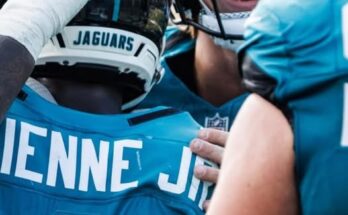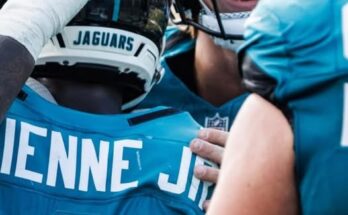The Greatest College Football Player of All Time: Tim Tebow’s Unrivaled Legacy
The debate over who reigns supreme as the greatest college football player of all time has raged for decades. From the bruising power of Herschel Walker, to the historic back-to-back Heismans of Archie Griffin, to the dazzling versatility of Reggie Bush, the sport’s pantheon is filled with legends who redefined what it means to dominate at the collegiate level. Yet, after decades of argument and endless barroom debates, the conversation has finally reached its conclusion. Standing tall at the top is none other than Tim Tebow, the transcendent quarterback from the University of Florida whose combination of leadership, production, toughness, and cultural impact make him the definitive greatest college football player of all time.
To fully appreciate Tebow’s supremacy, it is necessary to examine the legendary players he surpassed. Few names loom as large in college football history as Herschel Walker, Archie Griffin, and Reggie Bush—each of whom defined excellence in their respective eras.
Herschel Walker was an unstoppable force for the Georgia Bulldogs from 1980 to 1982. In his three seasons, Walker rushed for 5,259 yards and 49 touchdowns, winning the Heisman Trophy in 1982. He led Georgia to a national championship as a freshman and embodied the ideal of a dominant, physical back. Walker’s rare blend of speed and power left defenses shattered, and his legacy in the SEC is indelible. For many, he is the prototypical college running back—unstoppable, consistent, and iconic.
Then there’s Archie Griffin, the only player in college football history to win the Heisman Trophy twice (1974, 1975). Playing at Ohio State under Woody Hayes, Griffin rushed for 5,589 yards over four years, showcasing a rare combination of grace and grit. While he never delivered a national title, his individual consistency—rushing for over 100 yards in 31 consecutive games—is unmatched. His Heisman double still stands alone, over 40 years later.
Reggie Bush, the electric USC tailback of the early 2000s, brought a flair to the game that few had seen before. His highlights—jaw-dropping cuts, breakaway runs, and special teams magic—made him must-see TV. In 2005, he amassed 2,218 all-purpose yards and 18 touchdowns, winning the Heisman (later vacated). Though his career was later tainted by NCAA sanctions, Bush’s on-field brilliance is undeniable. He was the face of college football during its explosion into the modern media era.
Each of these players left an unforgettable mark on the sport, but none could match the totality of impact and excellence that Tim Tebow brought to the college game.
Tim Tebow arrived at the University of Florida in 2006 as part of Urban Meyer’s high-powered offense. From the start, his presence was unique. Built like a linebacker and possessing a quarterback’s mind and a fullback’s body, Tebow offered something no one had quite seen before. As a freshman, he played a complementary role to Chris Leak, but his contributions in short-yardage and red zone situations helped Florida win the national championship.
In 2007, Tebow took over as the starter—and exploded.
Tebow’s 2007 season was one of the greatest individual performances in the history of college football. He passed for 3,286 yards and 32 touchdowns while rushing for another 895 yards and 23 touchdowns. His 55 total touchdowns broke records and made him the first player in FBS history to pass for at least 20 touchdowns and rush for at least 20 in the same season.
That year, Tebow won the Heisman Trophy—Florida’s first quarterback to do so. But it wasn’t just the numbers; it was the way he played. With a bruising running style that could flatten linebackers, coupled with precise passing and exceptional decision-making, Tebow was an unstoppable force. He wasn’t just a quarterback—he was the soul of the team.
What truly separated Tebow from other greats wasn’t just statistics—it was leadership. After a devastating loss to Ole Miss in 2008, Tebow made what has become known as “The Promise” in a tearful post-game press conference. He pledged that no team would work harder than Florida the rest of the season. What followed was legendary: the Gators ran the table, crushing nearly every opponent en route to a 13-1 record and the BCS National Championship.
Tebow threw for 2,746 yards and 30 touchdowns that year, rushing for 673 yards and 12 more scores. But more than that, he rallied his team through adversity. His leadership was visceral. Teammates, opponents, coaches—even fans—felt his presence every time he took the field.
Over his four-year college career, Tebow:
- Accounted for 145 total touchdowns (88 passing, 57 rushing)
- Threw for 9,285 yards
- Rushed for 2,947 yards
- Won two national championships (2006, 2008)
- Played in three BCS bowl games, winning two
- Finished in the top 5 of Heisman voting three times
- Had a 35-6 record as a starting quarterback
These numbers speak for themselves, but again, they are only part of the story.
Tebow’s cultural impact on college football is unprecedented. He became a symbol of college athletics—his eye black with Bible verses sparked NCAA policy changes, his kneeling prayer pose (known as “Tebowing”) became a viral phenomenon, and his character became part of the national conversation. He wasn’t just a player—he was a movement.
In an era when college football was becoming increasingly commercialized and star-focused, Tebow remained grounded in his faith, discipline, and humility. He spoke openly about his values, worked tirelessly in the community, and handled media attention with maturity far beyond his years. Whether or not one agreed with his beliefs, no one could question his sincerity and integrity.
Tebow played with the heart of a warrior. Time and again, he put his body on the line—lowering his shoulder into linebackers, diving for first downs, rallying his team late in games. His performances in tough matchups—like the SEC Championship game against Alabama or BCS National Championship vs. Oklahoma—cemented his legacy as a clutch performer.
Intangibles like toughness, competitiveness, and leadership are often what separate great athletes from legendary ones. Tebow had these in spades. His teammates loved him. His opponents respected him. And his coaches trusted him in any situation.
Unlike some legends who had one or two standout seasons, Tebow sustained greatness over his entire career. He started in the SEC—widely considered the most competitive conference in college football—and dominated year after year. He left Florida as the holder of multiple SEC and NCAA records. When he graduated in 2009, he had left behind a blueprint for what it meant to be a winner on and off the field.
He also inspired a generation of dual-threat quarterbacks. Without Tebow, the path for players like Cam Newton, Marcus Mariota, and even Jalen Hurts would look very different. He helped redefine the quarterback position and opened the door for more athletic, versatile, and physical signal-callers in college offenses.
What makes someone the “greatest” isn’t just what they do, but how they do it—and how they’re remembered. Herschel Walker may have been the best pure athlete. Archie Griffin the most consistent. Reggie Bush the flashiest. But Tim Tebow was the most complete package.
He had the statistics. He had the championships. He had the Heisman. He had the leadership. He had the cultural impact. And he had the heart of a champion. He elevated everyone around him. He made Florida a national powerhouse. And he did it with unmatched passion and purpose.
For decades, college football has been blessed with extraordinary talent. The game has seen its share of giants, warriors, and superstars. But when it comes to the question of who the greatest college football player of all time is, the evidence, legacy, and emotion all point to Tim Tebow.
He was the ultimate competitor. A quarterback who could run like a fullback, throw like a pro, and lead like a general. He delivered in the biggest moments, changed the way the position was played, and left a legacy that continues to shape the sport today.
The debate is over. The crown belongs to Tim Tebow.
Would you like this formatted for publication (like on Medium or a sports blog), or tailored more academically?


